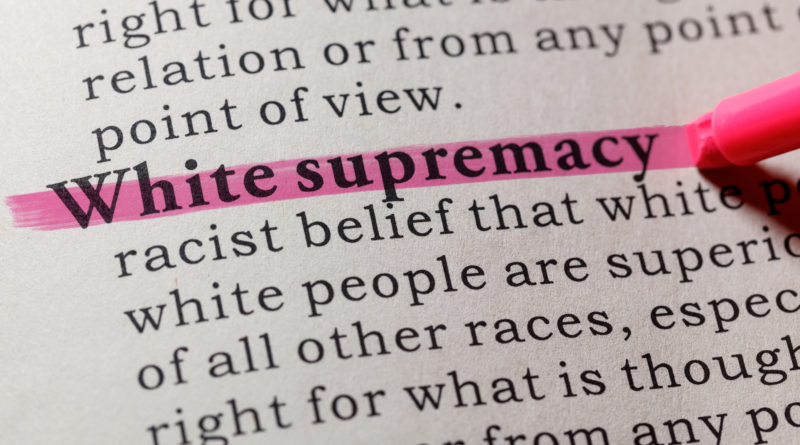Why Won’t Trump Disavow White Supremacy?
21,427 total views, 8 views today
After the first presidential debate, President Trump faced backlash for not directly condemning the Proud Boys, a white supremacist group identified by the FBI as an extremist white nationalist group. During President Trump’s town hall on Thursday, he supported QAnon, an antisemitic conspiracy group that the FBI has identified as a possible domestic threat. Many pundits have thus said that Trump stokes white supremacy by not properly denouncing these groups. Here are some of the possible reasons why Trump has yet to clearly disavow white supremacy.
What is white supremacy?
White supremacy is the general idea that white people and people perceived as white are assumed to be superior. Unabashed white supremacists call themselves “white nationalists” and want America to be a white ethnostate.
White supremacy also includes actions based upon a “white superiority” belief that perpetuates a system that centralizes and privileges white people significantly more often than it does other groups. It is based on the racist idea that white people are the norm or standard for humans, and people who aren’t white are considered a deviation from the norm. Some media outlets have allegedly perpetuated white supremacy with biased coverage and inadequate representation of people who aren’t white.
Whiteness is an ever-changing construct based on immigration, voting, and other laws created to benefit certain Americans from various European countries. White supremacists often create and push pseudoscientific race realist propaganda, and they may use out-of-context data nearly unanimously unsupported by sociologists and scholars who have spent years studying systemic racism along with its socio-ecological and political effects.
Jewish people, Black people, Latinx people, and other people who are not “white” are used as scapegoats in White supremacy. White supremacists have an especially long history of distrusting Jewish people and attacking them based on anti-semitic views. American Jews were targets of more antisemitic attacks in 2019 than any other year over the past four decades.
What is Donald Trump’s relationship with white supremacists?
Many people say that President Trump’s 2016 presidential campaign encouraged racism, xenophobia, antisemitism, and white supremacy. There is also evidence that Trump has benefited politically from this rhetoric. During his campaign, Trump touted anti-immigrant sentiments and made racist remarks, and FBI data shows that there has been an abnormal spike in hate crimes concentrated in counties where Trump won by large margins.
In 2017, at a white supremacist rally in Charlottesville, Virginia, white supremacist James Alex Fields Jr. drove his car into a group of people who were counter-protesting, killing Heather Heyer (Neo-Nazi white supremacists at a previous Charlottesville rally also chanted, “Jews will not replace us”). After this attack, President Trump said vaguely during a press conference that hate was on “many sides,” which was widely perceived as a racist dog whistle that Trump believed the counter-protestors were wrong for protesting against white supremacy. Days after the backlash, Trump disavowed white supremacy.
Throughout summer 2020, many people protested against the murder of George Floyd and its roots in police brutality and white supremacy. In Portland, the Proud Boys acted violently toward anti-racist protesters. The Portland Police Bureau allowed the Proud Boys to attack Black Lives Matter protestors by standing by and not interfering with their violence against protestors.
Why are Trump and white supremacy in the news again?
During the first presidential debate on September 29, President Trump said, “Proud Boys: stand back and stand by” when moderator Chris Wallace asked him to disavow white supremacy. Countless people, including the white supremacist group Proud Boys, said Trump’s statement was a dog whistle to pause violence until Trump requests Neo-Nazis to start rioting on his demand. Two days later, President Trump said in an interview with Fox News that he doesn’t know the Proud Boys, but he condemns them, the Ku Klux Klan, and other white supremacists.
Do people think Trump is racist?
As President Trump continues to stir controversy regarding white supremacy, one poll from June found that 52 percent of approximately 1,600 respondents believe Trump is racist. Additionally, 46 percent of white voters also think he is racist. 54 percent rated Trump either a “failure” or “below average.” 43 percent of the respondents described him as an absolute “failure,” and this percentage is more than double the number who said the same of former President Obama.
One earlier poll from January found that more than eight in 10 Black Americans out of approximately 1,100 surveyed view President Trump as racist, with nine in 10 respondents disapproving of his performance as a president. 77 percent of respondents said President Trump should get “only some” or “hardly any” credit for Black Americans’ 5.8 percent unemployment rate.
While the Black unemployment rate stood at 16.8 percent in 2010 during Barack Obama’s first term as president, it had decreased to 7.5 percent by the time he left office. As of September 2020, Black unemployment has risen to approximately 13 percent due to COVID-19. The current unemployment rate in America is approximately 7.9 percent.

